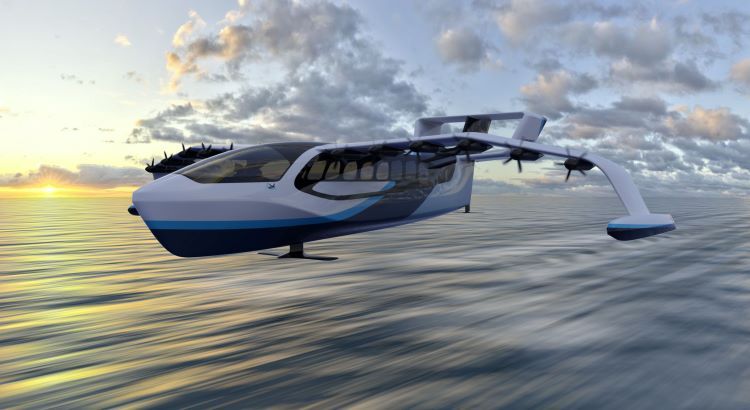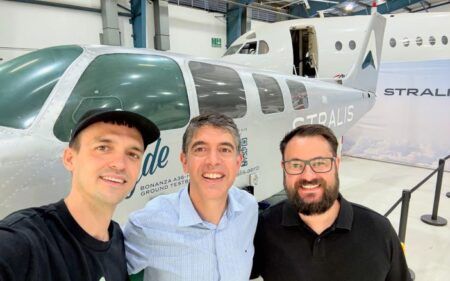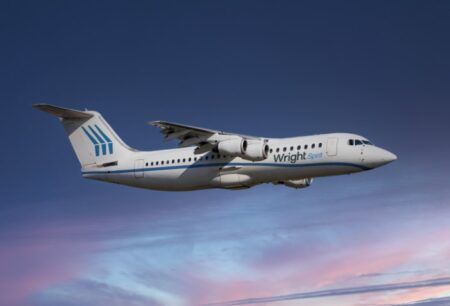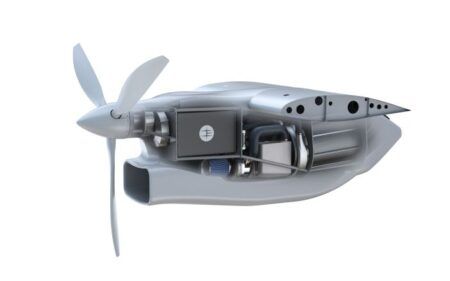Regent has raised US$90 million in funding including investments from Japan Airlines and Lockheed Martin, to develop its all-electric seaglider.
The funding will be used to build the USA-based company’s first full-scale prototype and run a test program with crewed flight next year. The company plans to certify, manufacture, and deliver its seagliders to customers by mid-decade.
Regent’s Viceroy 12-passenger seaglider combines design elements of hydro-foil watercraft and aircraft so they can operate like a boat in docks and harbors, and take-off and fly within one wingspan of the surface over open water. The Viceroy is designed to reach cruise speeds up to 180mph (290km/h) while traveling up to 180 miles (290km) on a single charge.
Regent has so far demonstrated what it calls its “float, foil, fly” concept with a subscale prototype in 2022, the first time a vehicle has successfully combined the wave tolerance of a foil with the speed of a wing.
Billy Thalheimer, co-founder and CEO of Regent, “There are extraordinarily few companies today with battery powered vehicles that can fly human crew, and Regent is about to join those ranks. Seagliders will be the first electric flying machine to be economically viable, and I’m willing to bet, the first one that the majority of the world will take a ride in.”
Seagliders target market are coastal communities and the company estimates it to be worth US$25 billion by 2030. After the Viceroy, it plans to develop the Monarch, which will carry 100 passengers on routes up to 500 miles and is planned to enter service by the end of the decade.
The company has more than 500 seagliders on order from global airline and ferry customers including Mesa Airlines and Brittany Ferries. The launch customer Southern Airways will take delivery of the first production Viceroy, which will operate under their Mokulele Airlines brand.
In addition to passenger travel, seagliders support multiple mission sets such as cargo transport, search and rescue, offshore logistics, and defense applications, which further expand the company’s customer base and market opportunities.
The Viceroy’s certification pathway is being supported by the US Coast Guard and other global maritime authorities.





